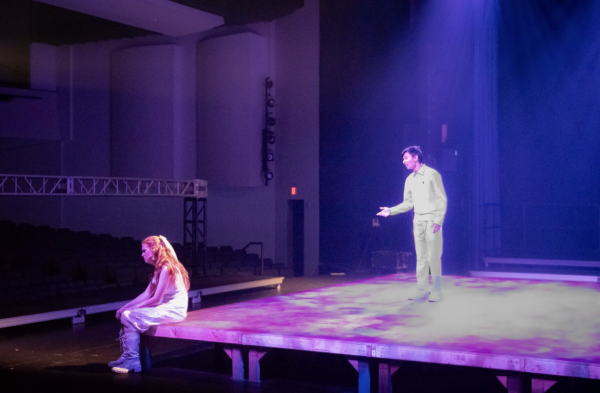The Tragedy of Yik Yak
On Wednesday, April 23rd, the Berkeley student body experienced an incident of cyber-bullying noted as much for the substantial malice of the perpetrators as the swiftness with which it invaded our community.
Sadly, the use of the immensely popular app Yik Yak revealed the true character of a number of the student population. The structure of the app in itself offers a vessel to express opinions, which students did so prolifically, incorrectly assuming that there would be no repercussions. The illusion of anonymity that the app provides gives users a sense of protection and because of that they feel they can post whatever is on their minds. As a result, the drama of high school can be harshly reflected in the online comments. Furthermore, because of the mob mentality that can occur when students see others posting, they are spurred by a need for inclusion. As a result, there was a rapid growth of users within hours of the first download, including at places like Berkeley. While most students are not directly at fault, the actions of a few individuals stained the high standard that Berkeley upholds. In addition the numerous “innocent” bystanders did nothing to discourage the abuse of their classmates, despite how easy it would have been to merely contact a faculty or administration member.
The Yik Yak app was originally designed to be fun and constructive, a way for people in a 1.5 mile radius to have friendly conversation and post random musings. In most places, it functions perfectly well. However, what we witnessed last week reflects a fundamental failure among some members of the student body—it indicates that the students posting comments about their peers can easily be classified as petty and vindictive. It is saddening that some individuals have so drastically failed to develop even the smallest bit of empathy or maturity, so that something as simple as the impetus of anonymity would be enough to cause them to shame fellow students. In retrospect, the same sadness could be felt regarding the complacency of onlookers. While some, in person, outwardly expressed disapproval of the message board they ultimately did nothing to stop the comments, acting as nothing more than anonymous onlookers. Perhaps worse still were those who endorsed the inappropriate postings.
In situations of cyber-bullying, shaming and the general ridiculing of peers, a common thread exists which unifies every instance of bullying: selfishness. Selfishness can be seen as the idea that any given individual is the center of the universe and everything that a person does occurs solely to benefit him or her. It becomes easy to forget that the world is a shared place. Overcoming this character flaw is hard. At Berkeley, the idea of “niceness” is so frequently exhibited that we forget that it’s not as easy and common to actually be nice as people may perceive. Constantly, we as Berkeley students have values such as “kindness” and “caring” emphasized for us as central to our behavior at our school. However, after such repetition, it seems we have lost sight of the true meaning of these words. We must not only be consciously be aware of the needs of others and the relative insignificance of our own when compared to those of the world, but as a population, we must be able to make it a part of our belief systems and demonstrate it daily in our interactions towards others.
Unless we truly believe, on every level, including that of our subconscious, that our needs come second to the needs of those around us, we cannot become kinder people. “Being nicer” requires conscious effort. No matter how much the Berkeley community emphasizes the ideals of kindness and respect, we as students must strive to embody them individually. Those in our population who revealed their flawed character via the recent abuse of social media and disregard for their peers will only begin to change once they establish an open mind and the willingness to allow the idea of caring to resonate within all of us. This has to take place on an individual basis.
Even now that the dust has settled, it is impossible to know exactly how the targets of the posts are affected. However what we do know is that the cruel contents of the posts which were aimed at many valued members of the Upper Division have definitely left a scar on the community. To put the situation in perspective, there is no difference between an event such as the Yik Yak abuse and, for example, the famous cyber-bullying case of Amanda Todd—one that ultimately resulted in her suicide. The old adage proves to be true in this case: we are only as strong as our weakest link. As we’ve said, kindness and respect must come from within each individual and cannot be impressed upon us solely by others in our community. However, hopefully this event will serve as a very concrete wake-up call for those students who need to re-evaluate themselves.







